A Power of Attorney in Delaware grants an agent legal control over property and assets and the legal right or authority to act on behalf of the principal.
To bestow the power, a principal (or the person who has made a power of attorney) executes the document and names an agent (the person to whom power is given). This person holds a POA until the designated time has passed, the objectives are met, or the principal terminates the POA. The agent can begin signing and acting on behalf of the principal once the form is signed and there is no need to record the document in the government office.
State laws in Delaware govern the preparation and execution of the forms. This article will highlight the different types of POAs, governing laws, and how to acquire a POA in Delaware.
Customizable Forms
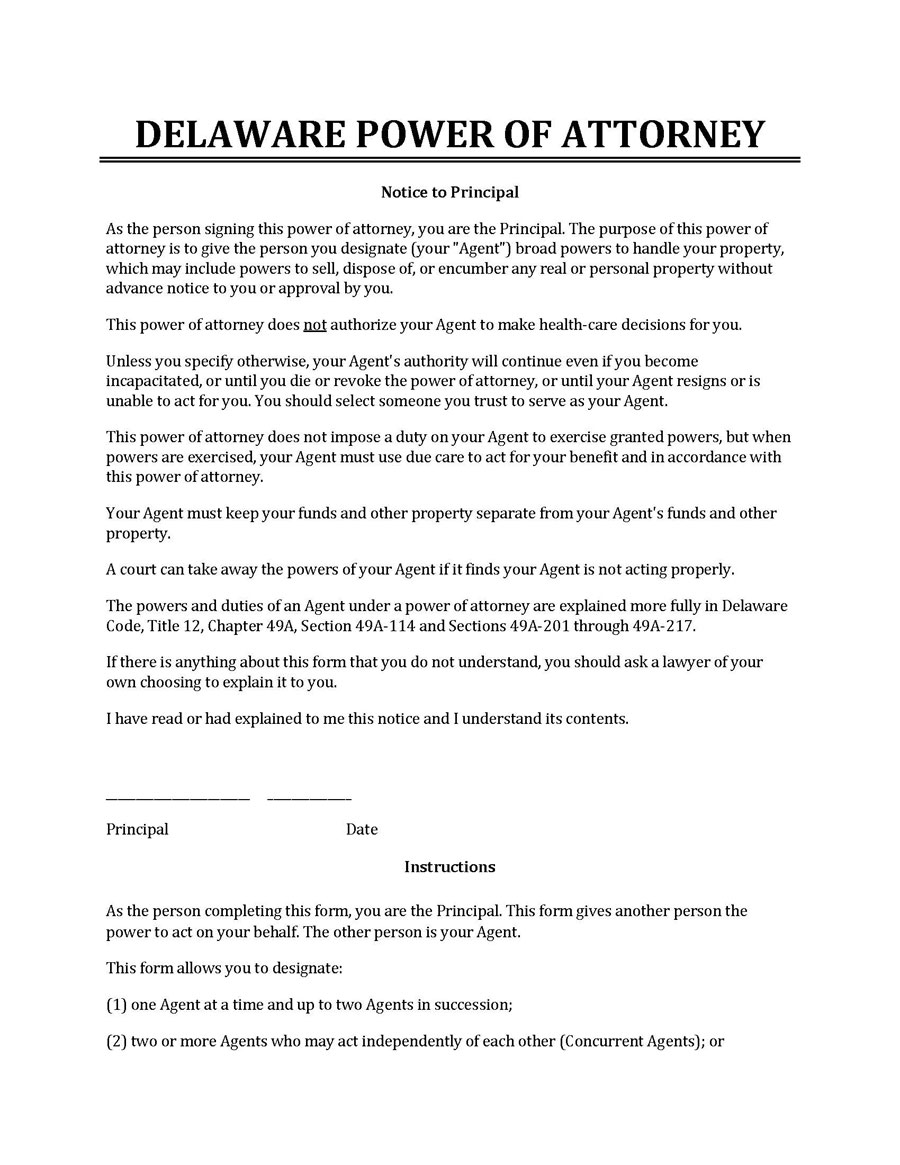
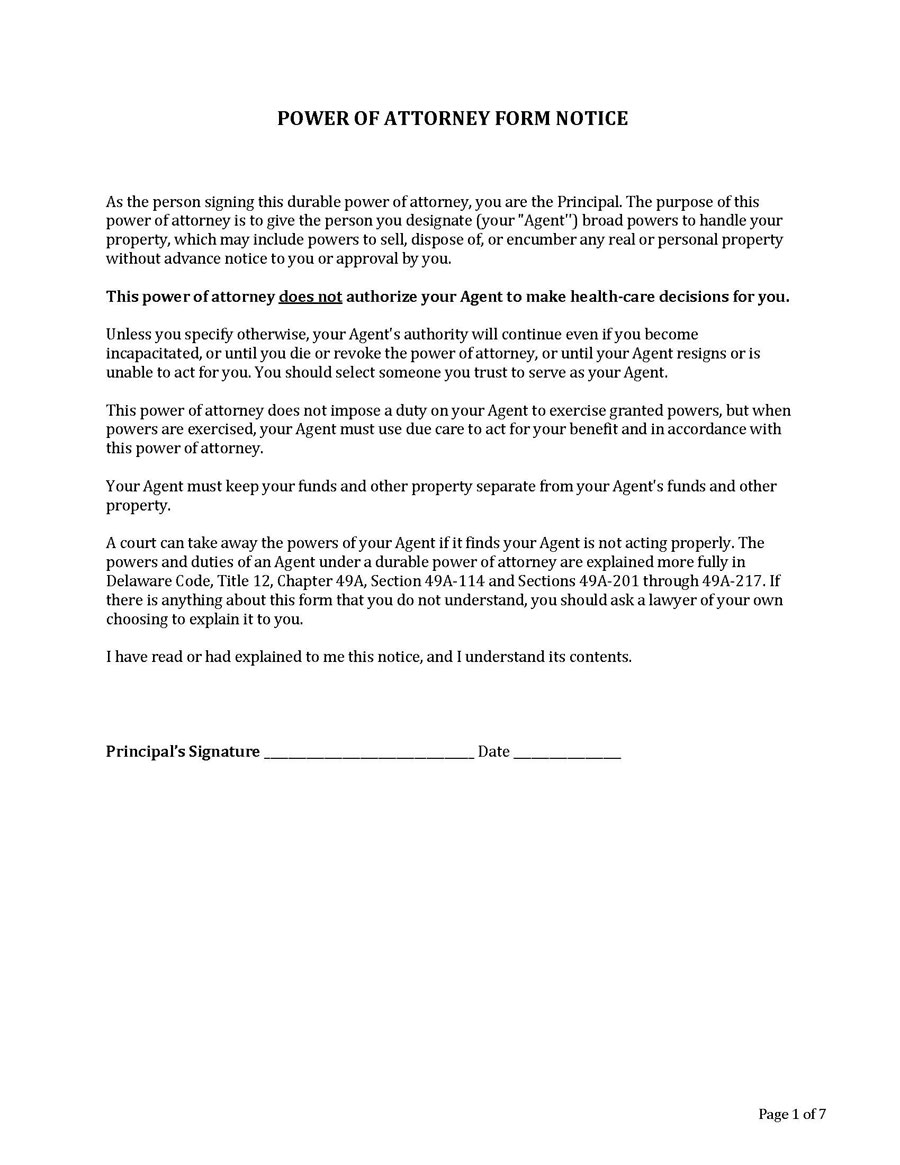
Different Types of POA
Multiple types of Delaware power of attorney forms are available for use in the state. Each type is aimed at a specific purpose or domain. This way, the principal who wants to appoint an agent or companies to carry out different functions on their behalf can do so using a POA that reflects the situation.
Examples of POA types in Delaware include:
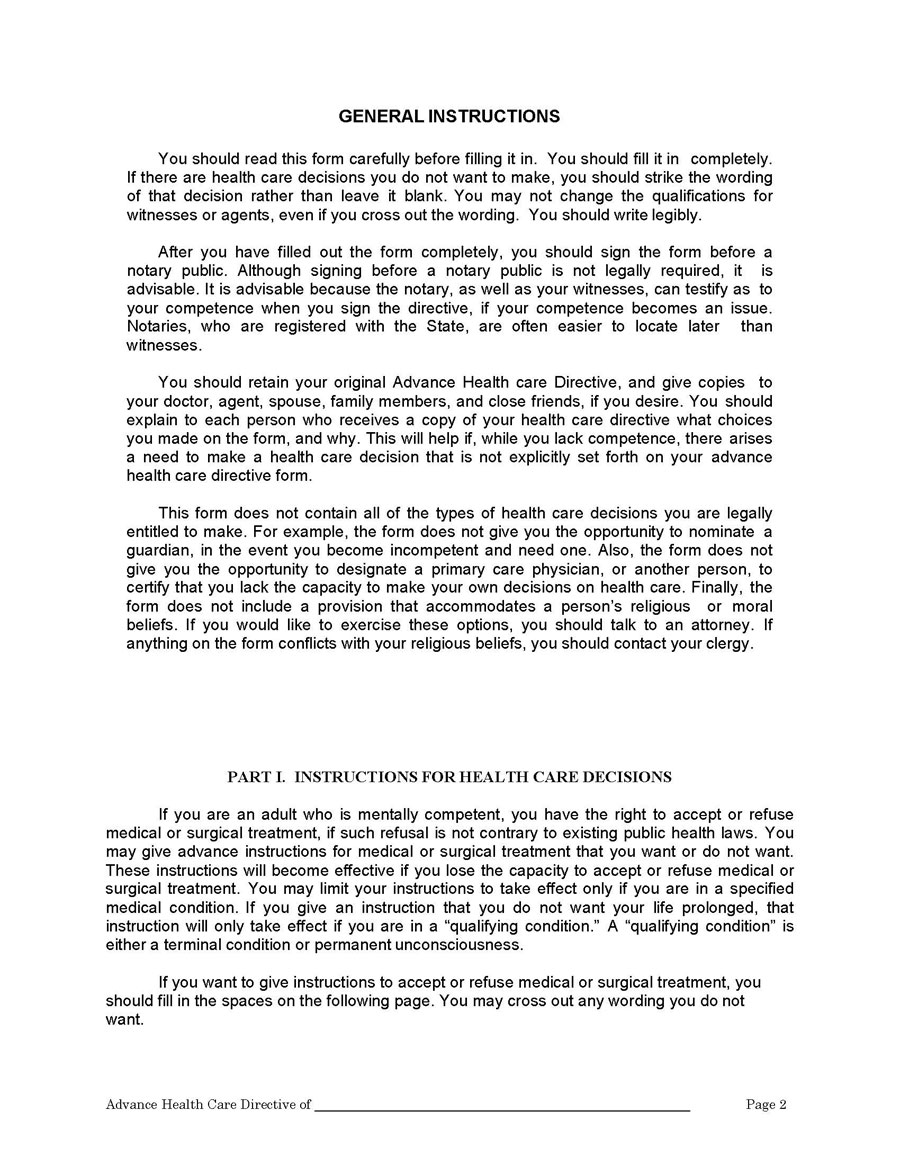
Advance Health Care Directive POA Sample
Download: Microsoft Word (.docx)
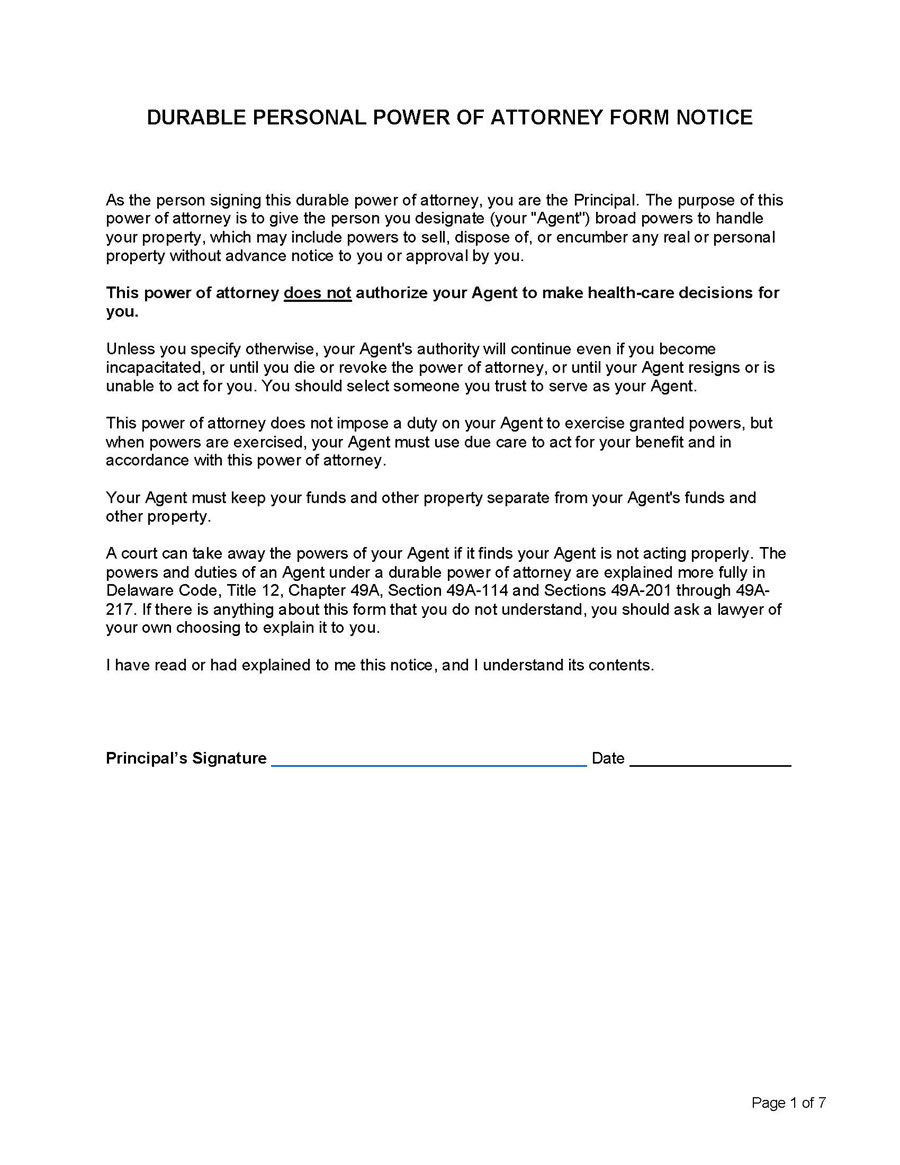
Durable Power of Attorney Form
Download: Microsoft Word (.docx)
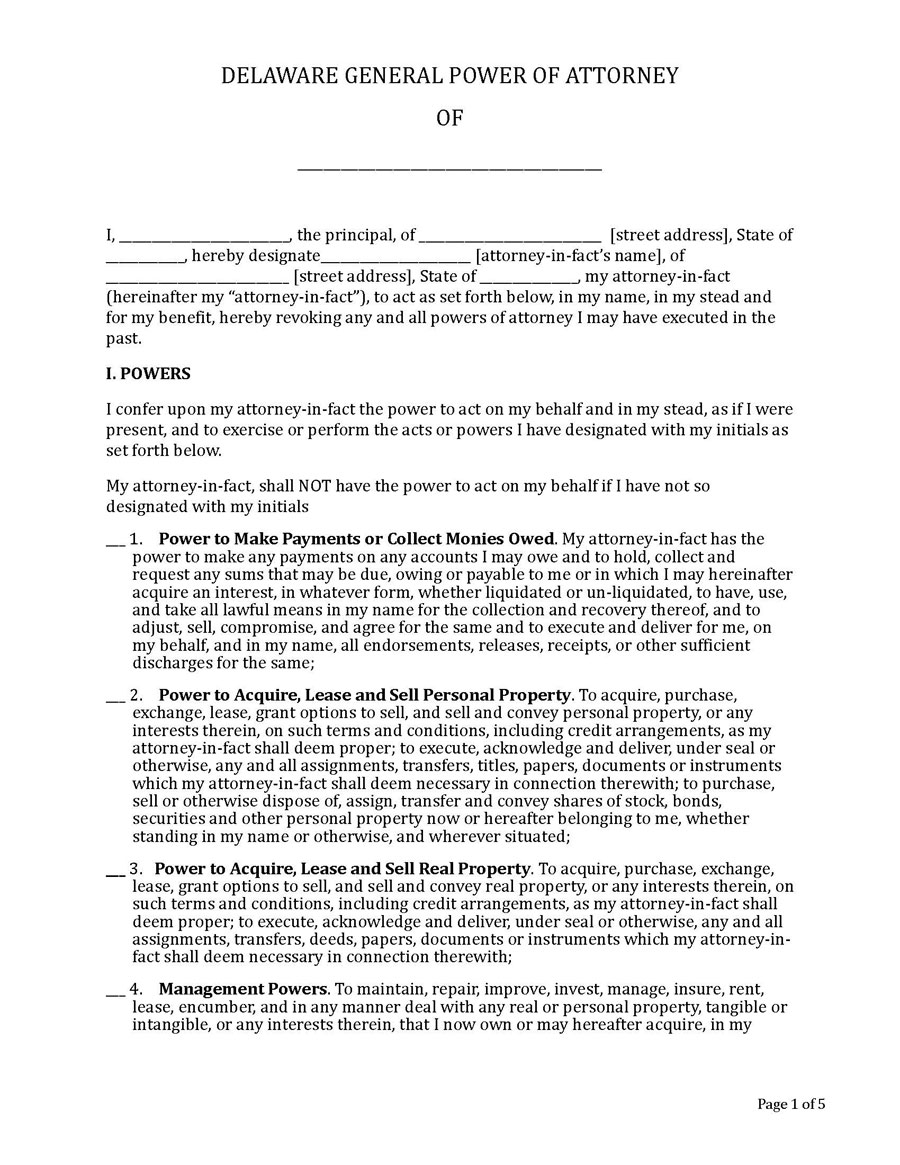
General Power of Attorney Form
Download: Microsoft Word (.docx)
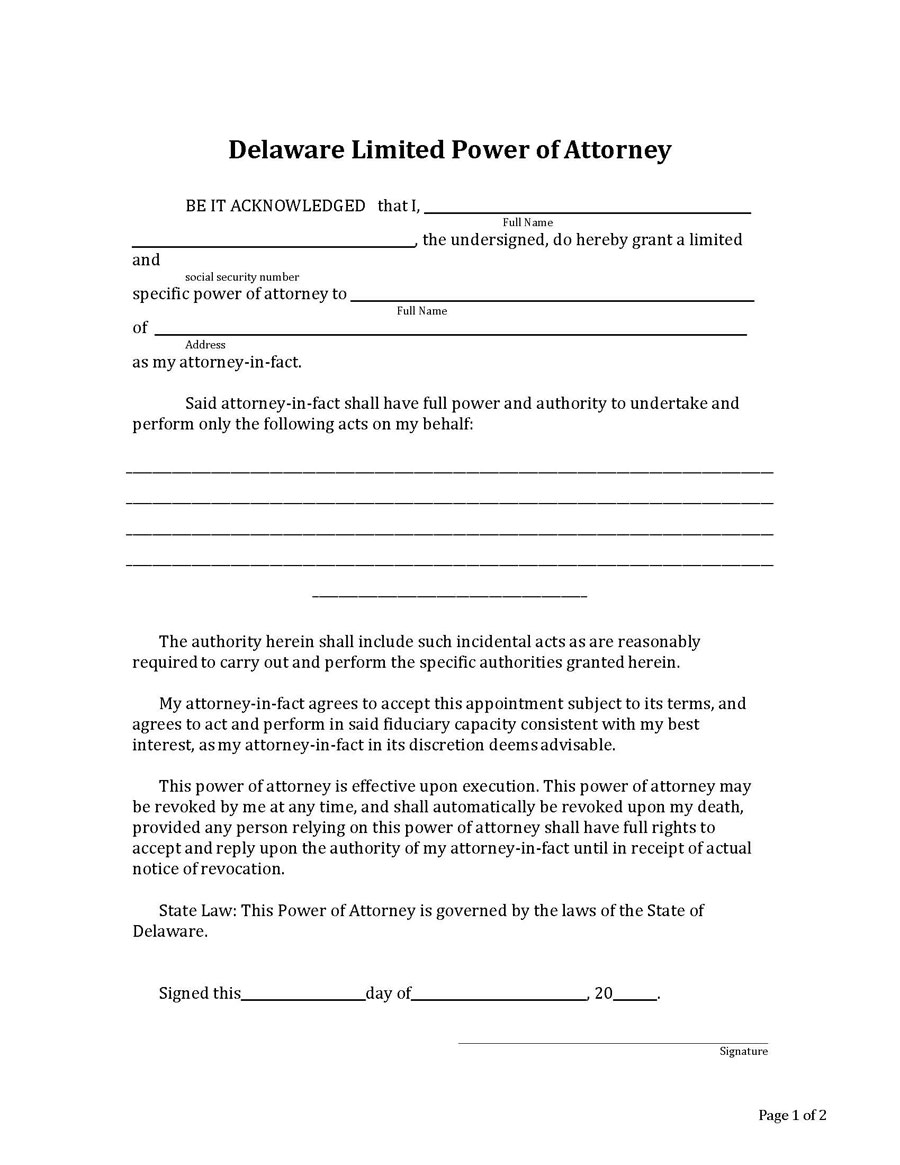
Limited Power of Attorney Form
Download: Microsoft Word (.docx)
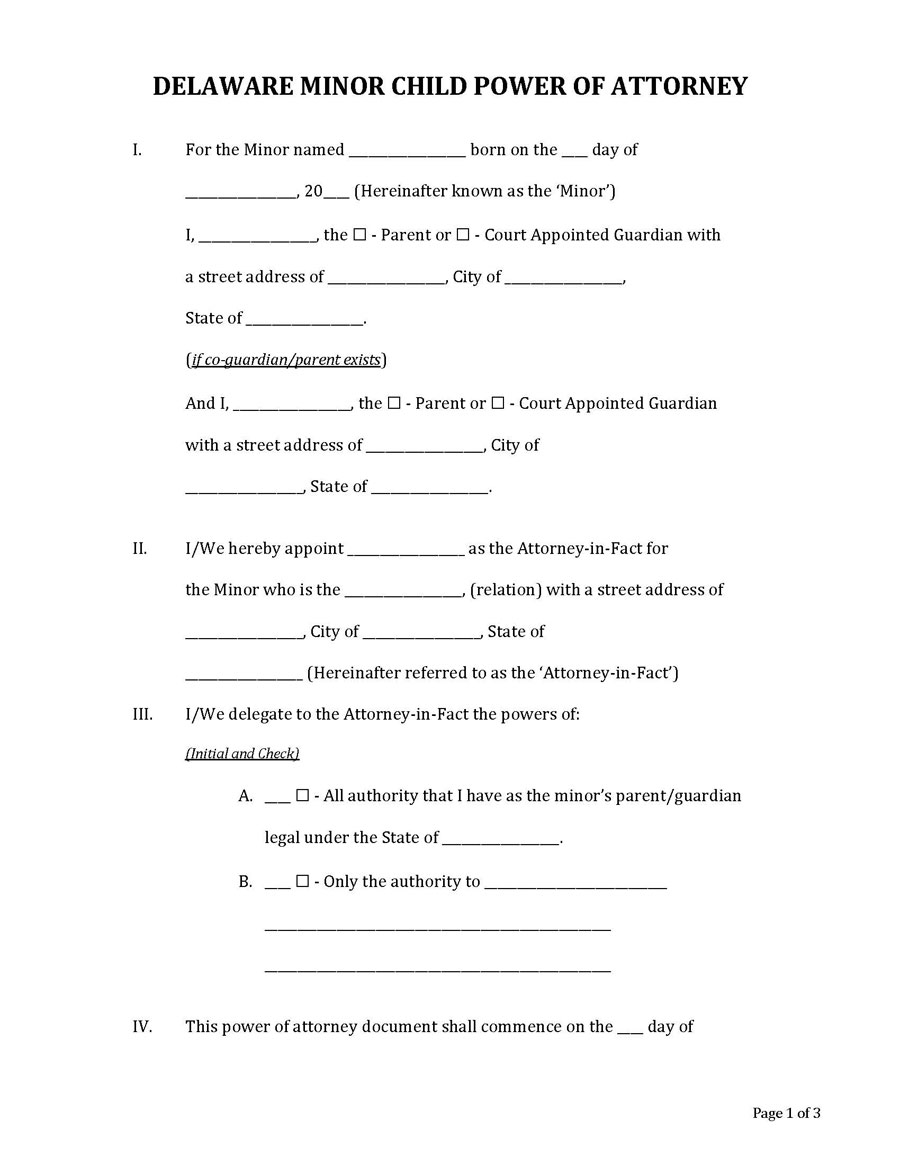
Minor Power of Attorney Form
Download: Microsoft Word (.docx)
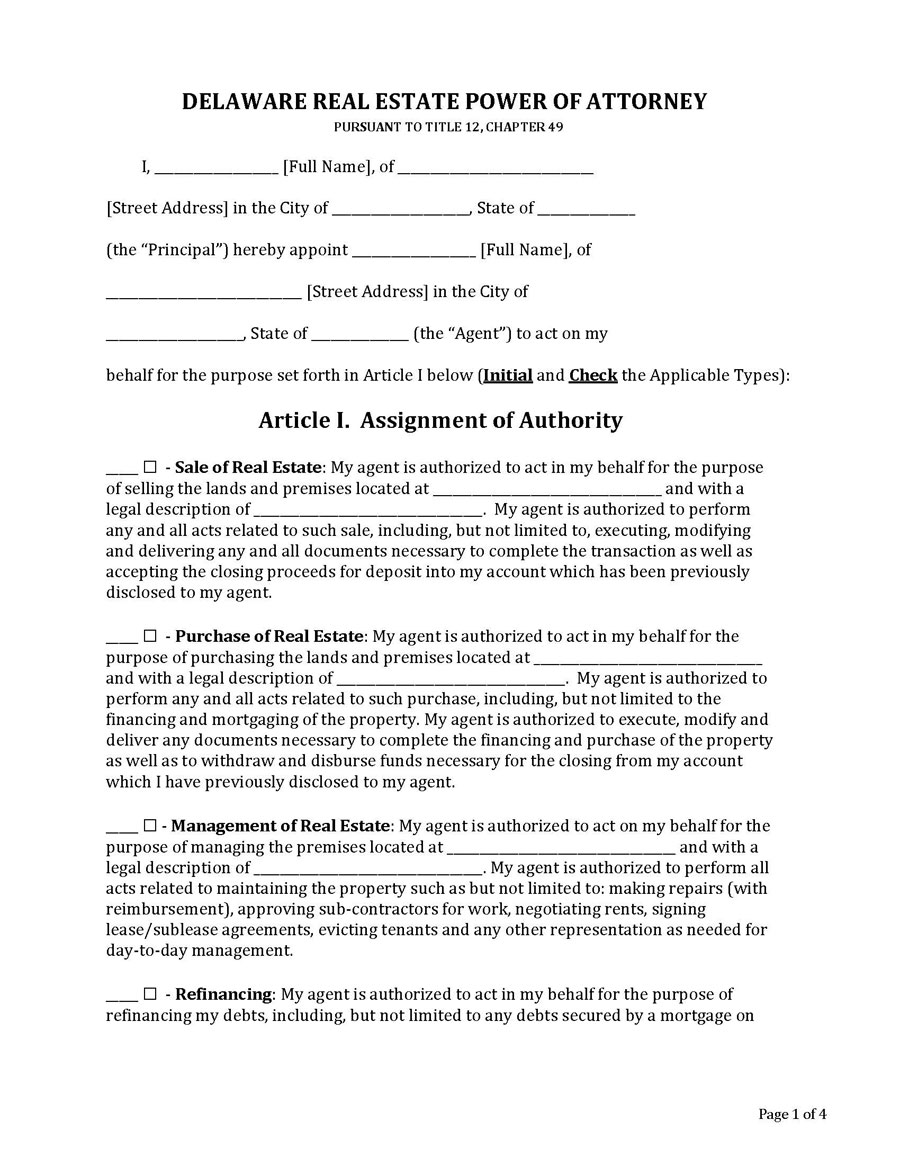
Real Estate Power of Attorney Form
Download: Microsoft Word (.docx)
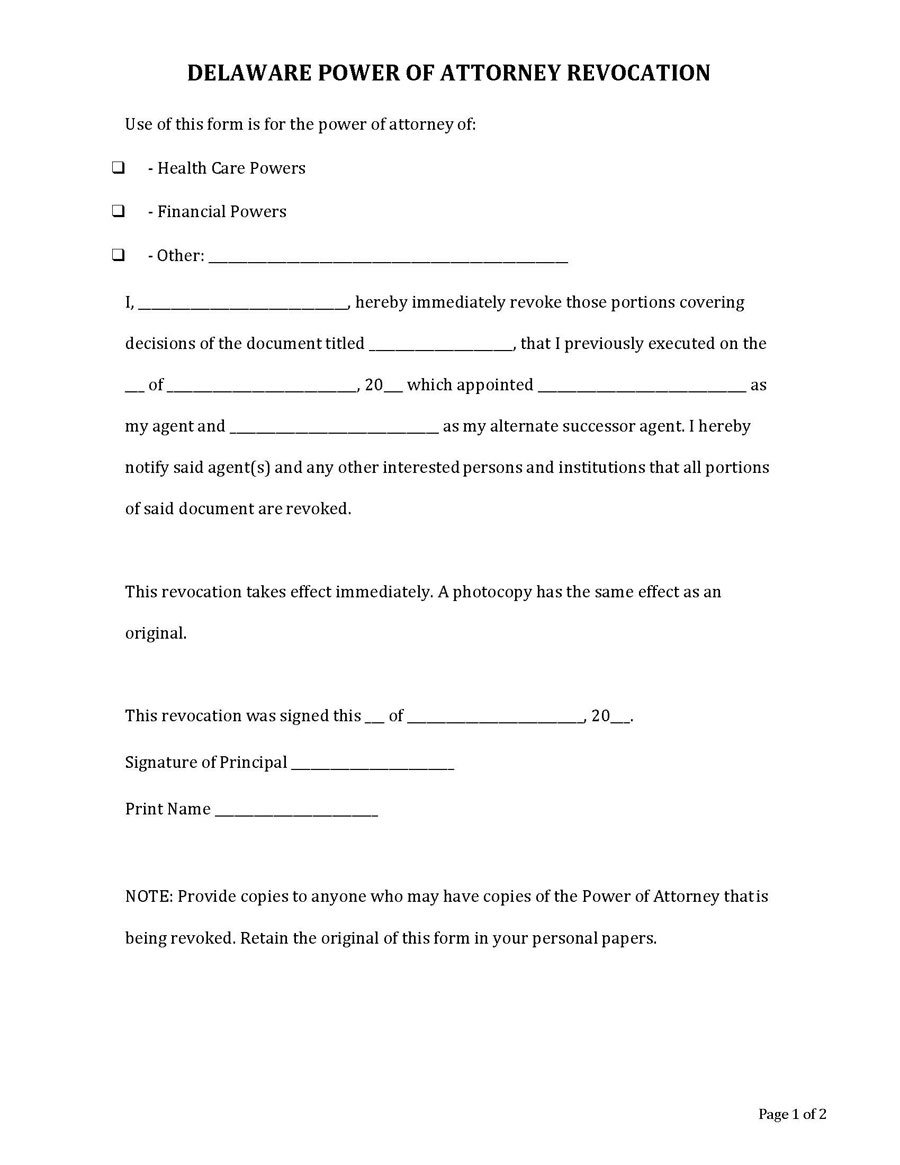
Revocation of Power of Attorney Form
Download: Microsoft Word (.docx)
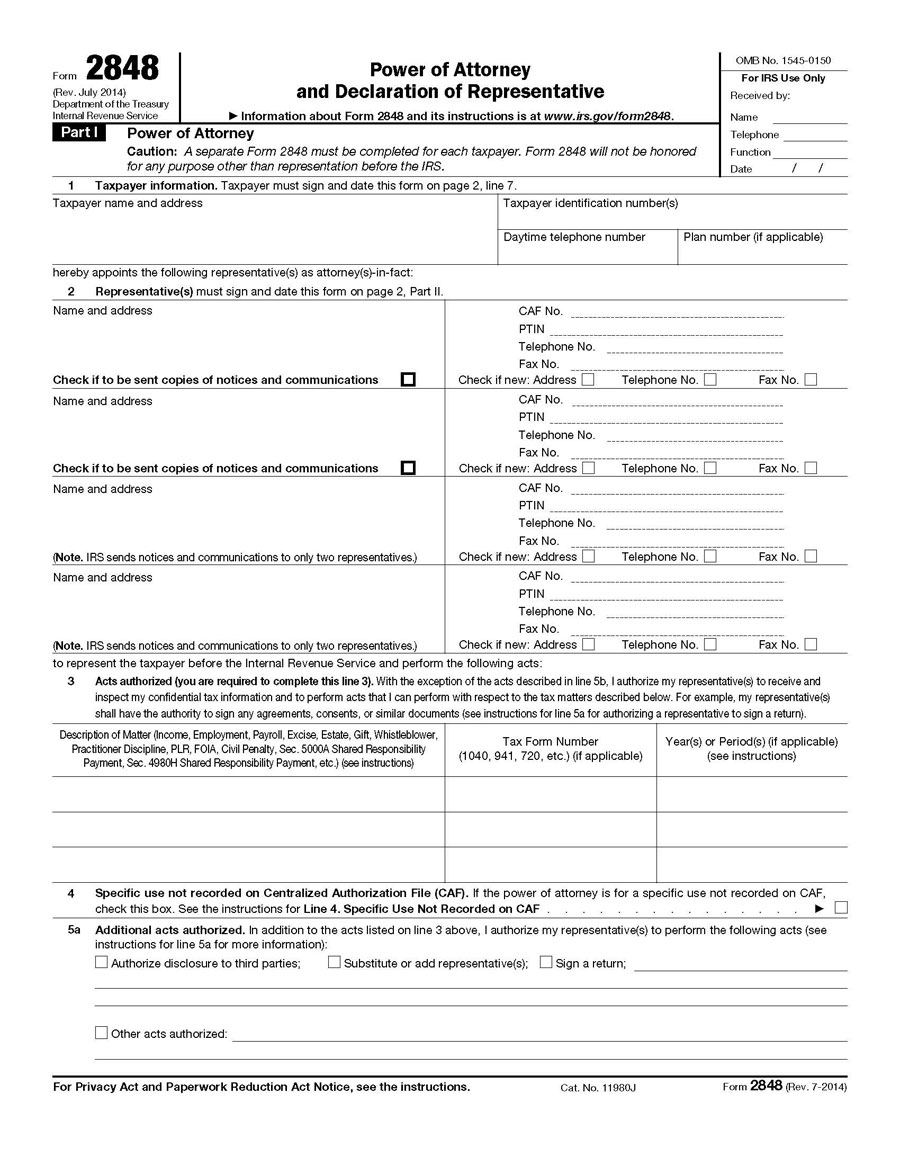
Tax Power of Attorney Form
Download: Microsoft Word (.docx)
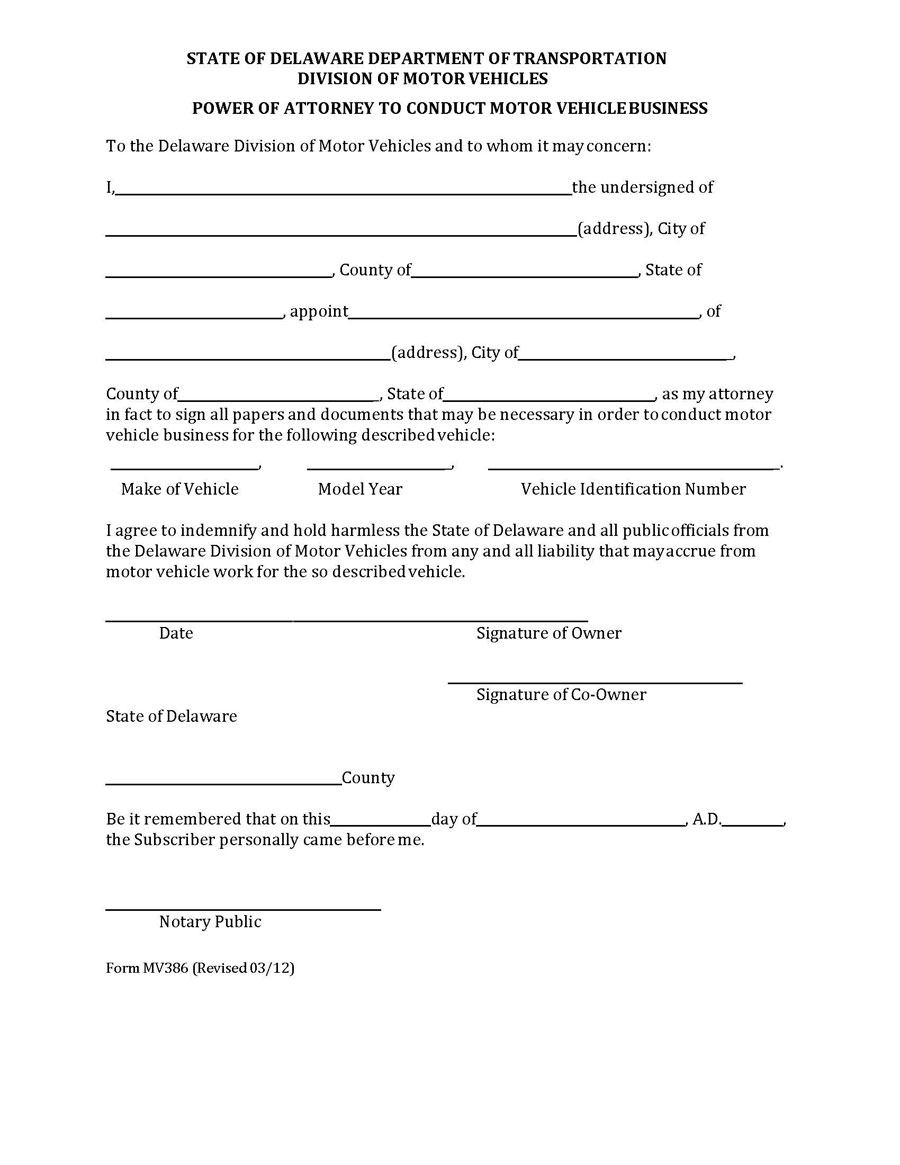
Vehicle Power of Attorney Form
Download: Microsoft Word (.docx)
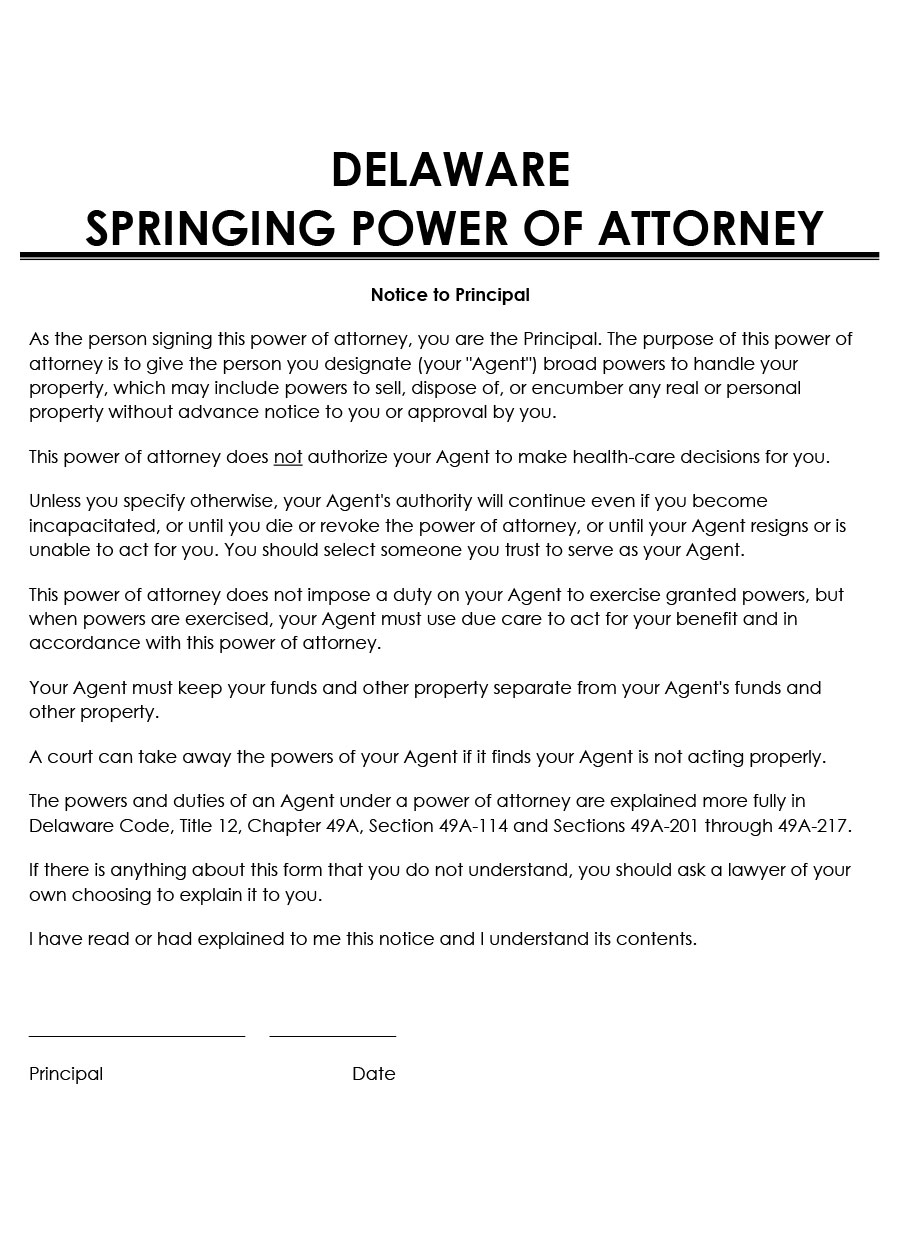
Springing Power of Attorney Form
Download: Microsoft Word (.docx)
Governing Laws
Delaware durable POA is typical due to its ability to extend even after the principal becomes incapacitated. Its execution is governed by Title 12, Chapter 49A (Durable Personal Powers of Attorney). According to (§ 49A-102(2)), the term durable implies that the principal’s incapacity does not terminate the POA. A durable POA is also defined under (§ 49A-102(2)). The state of Delaware dictates that the durable POA must be signed following (§ 49A-105) to be valid. Delaware does have a statutory form located at § 49A-301 of the Delaware Code.
Delaware POA Requirements
The state of Delaware dictates that a POA meets specific requirements stipulated under the Delaware Durable Personal Powers of Attorney Act to be legally enforceable within the state. Firstly, the appointed agent must be an adult, over 18 years. Both parties (principal and agent) must sign the document. At least two witnesses should also witness the POA.
Additionally, the principal is prohibited from combining their funds with the agent. Also, the court has a right to revoke a Delaware power of attorney if they establish that it has not been executed appropriately. Regarding an advance health care directive, the state of Delaware requires that a registered physician declare that the principal is incapacitated and unable to make medical decisions before the agent assumes responsibility on behalf of the principal.
Additionally, the agent is legally authorised to grant, refuse or withdraw consent to medical treatments even if it is believed to be aimed at extending the principal’s life.
How to Get Power of Attorney in Delaware?
Delaware State has made the acquiring of a POA easier by providing statutory forms on the Delaware courts website. The statutory can be used as a guide in creating customised Delaware power of attorney. The process of obtaining a POA in Delaware can be summarized in the following steps: first, understand how a POA works, appoint an attorney-in-fact/agent, assign responsibilities, create a POA in Delaware, find witnesses, sign the document and notarize it and lastly keep the original copy and issue a copy to the agent.
Key Takeaways
- A power of attorney is a contract of authority that gives an agent the legal power to act on behalf of the principal. This is usually done for financial matters but can be used for any activity like real estate or health care purposes.
- All states have provisions for POA, but not all POAs are the same, and not all POAs are enforceable. A POA has to comply with Delaware state laws and requirements to be enforceable within the state.
- Delaware has its own set rules for making a POA valid. Some states may require additional documents like medical power of attorney, wills, and trusts. Therefore, it is advisable to check the state laws in which you reside.
- Delaware has many forms of POA with variations such as durable, springing, tax, etc.












